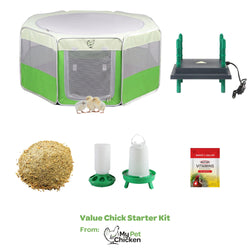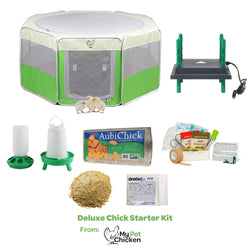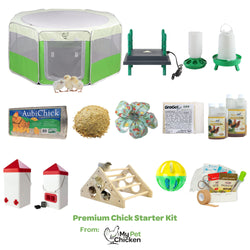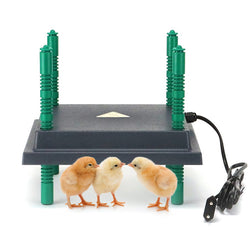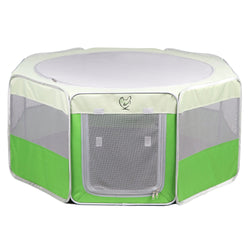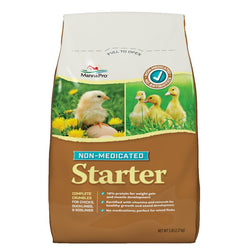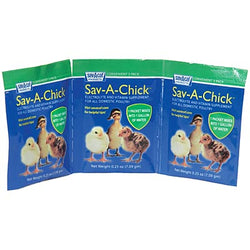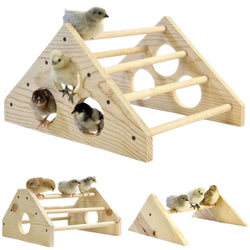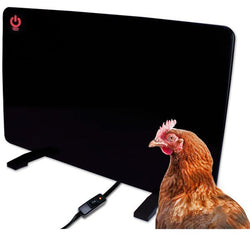Do ducks, geese, and chickens get along with each other?
Back to blog
Yes! Generally speaking, ducks, geese, and chickens (and most other types of fowl) get along really well with one another without too many issues, especially if they grow up together from the time they are very young and have plenty of space in their coop and exercise area. And what fun a mixed flock can be, with all the different feather patterns, personalities, quacks, honks, and cackles!
But before you mix different species together in your flock, there are some things to consider.
1. Male waterfowl can be dangerous for female chickens.
Unlike roosters, drakes and ganders (male ducks and geese) have an actual penis. Hens aren't made to accept that! A drake or gander mating with a hen can cause prolapsed vent which can kill the hen. If you keep waterfowl and chickens together, you may want to make sure all the waterfowl are female.
2. Chickens like to be dry, but ducks and geese love water.
Specifically, ducks and geese love to splash, play, and bathe in water--and that makes a mess all over the coop and run, along with any other birds that are nearby. This may not be such a problem on a warm summer day, but in the cold of winter, getting wet can matt chickens' feathers and cause chilling because they lack that wonderful layer of down and fat that waterfowl enjoy.
Because of that, you may want to have a separate swimming area for your waterfowl, away from the chickens, or only allow them access to swimming water on warmer, sunny days.
If you do mix messy, wet waterfowl and chickens, be prepared to clean out their coop and run areas more frequently than if you had chickens alone.

Some choose to keep the species separated; here are three species in side-by-side pens.
3. Different species have different feed needs.
Ducks, geese, and chickens all have slightly different nutritional needs, and each requires different feed formulations at different stages of their development. It is possible to mix species and ages in a flock, but you may need to separate certain groups at times to make sure they have access to the type of feed that they need most and keep others from eating feed that would not be right for them. We talk more about that here and here.
4. Changing seasons may bring behavior changes.
Ducks and geese may become more aggressive during spring and early summer when they are working to lay, incubate, and hatch eggs. Make sure your multi-species flock has plenty of room so that each breed's nesting areas don't interfere with one another. You may want to avoid adding new ducks or geese during the breeding season, as these species will be less open to new members of the flock during that time of year.
5. New birds require a new pecking order.
New birds upset the agreed-upon pecking order and require it to be re-calibrated. This article primarily references chickens, but in general, the recommendations there can be followed to make the introductions go as smoothly as possible.
We have tips for introducing new ducks to your flock here, and tips for introducing new geese to your flock here.
Taking these tips into account can help you enjoy a mixed flock of honkers, quackers, cacklers, and crowers for many years to come!
But before you mix different species together in your flock, there are some things to consider.
1. Male waterfowl can be dangerous for female chickens.
Unlike roosters, drakes and ganders (male ducks and geese) have an actual penis. Hens aren't made to accept that! A drake or gander mating with a hen can cause prolapsed vent which can kill the hen. If you keep waterfowl and chickens together, you may want to make sure all the waterfowl are female.
2. Chickens like to be dry, but ducks and geese love water.
Specifically, ducks and geese love to splash, play, and bathe in water--and that makes a mess all over the coop and run, along with any other birds that are nearby. This may not be such a problem on a warm summer day, but in the cold of winter, getting wet can matt chickens' feathers and cause chilling because they lack that wonderful layer of down and fat that waterfowl enjoy.
Because of that, you may want to have a separate swimming area for your waterfowl, away from the chickens, or only allow them access to swimming water on warmer, sunny days.
If you do mix messy, wet waterfowl and chickens, be prepared to clean out their coop and run areas more frequently than if you had chickens alone.

Some choose to keep the species separated; here are three species in side-by-side pens.
3. Different species have different feed needs.
Ducks, geese, and chickens all have slightly different nutritional needs, and each requires different feed formulations at different stages of their development. It is possible to mix species and ages in a flock, but you may need to separate certain groups at times to make sure they have access to the type of feed that they need most and keep others from eating feed that would not be right for them. We talk more about that here and here.
4. Changing seasons may bring behavior changes.
Ducks and geese may become more aggressive during spring and early summer when they are working to lay, incubate, and hatch eggs. Make sure your multi-species flock has plenty of room so that each breed's nesting areas don't interfere with one another. You may want to avoid adding new ducks or geese during the breeding season, as these species will be less open to new members of the flock during that time of year.
5. New birds require a new pecking order.
New birds upset the agreed-upon pecking order and require it to be re-calibrated. This article primarily references chickens, but in general, the recommendations there can be followed to make the introductions go as smoothly as possible.
We have tips for introducing new ducks to your flock here, and tips for introducing new geese to your flock here.
Taking these tips into account can help you enjoy a mixed flock of honkers, quackers, cacklers, and crowers for many years to come!

